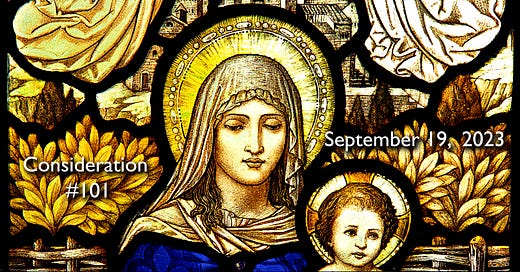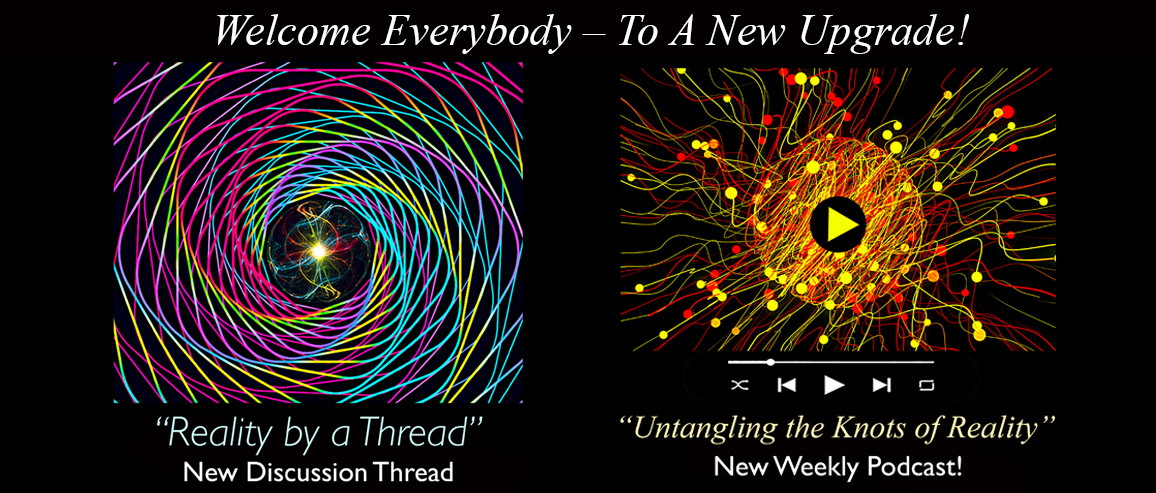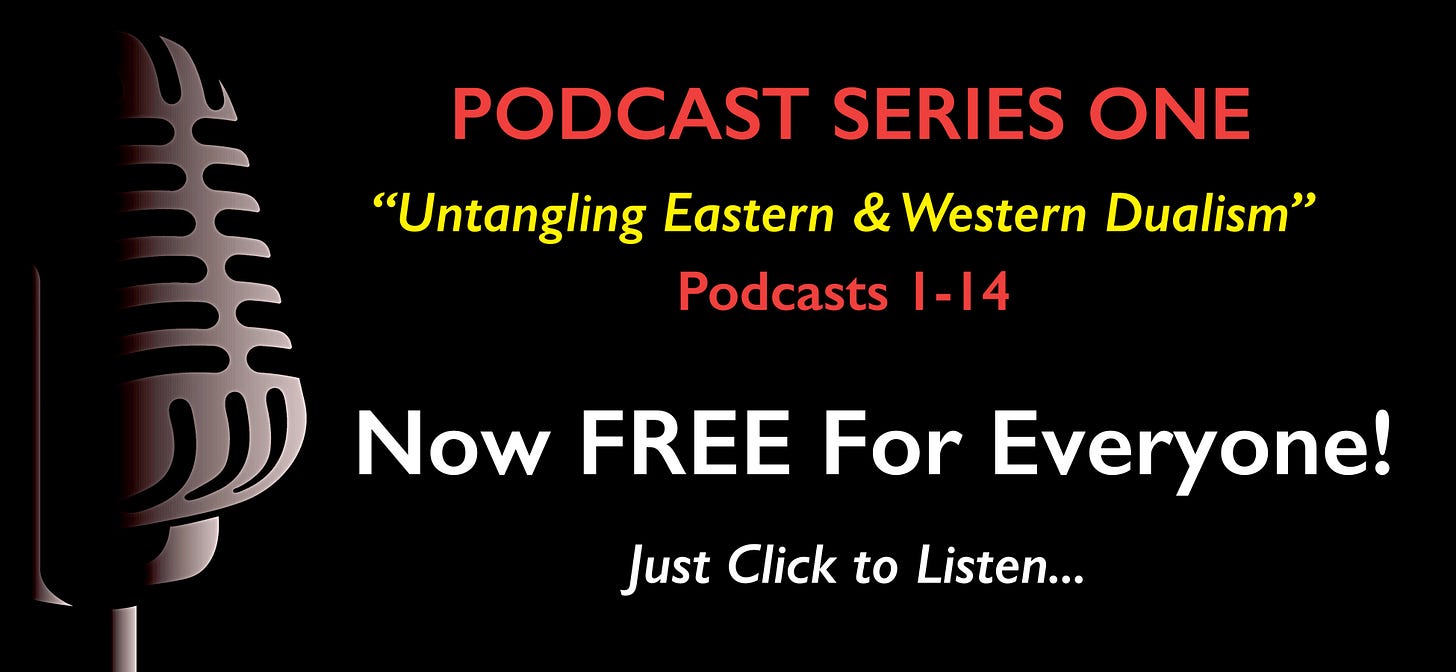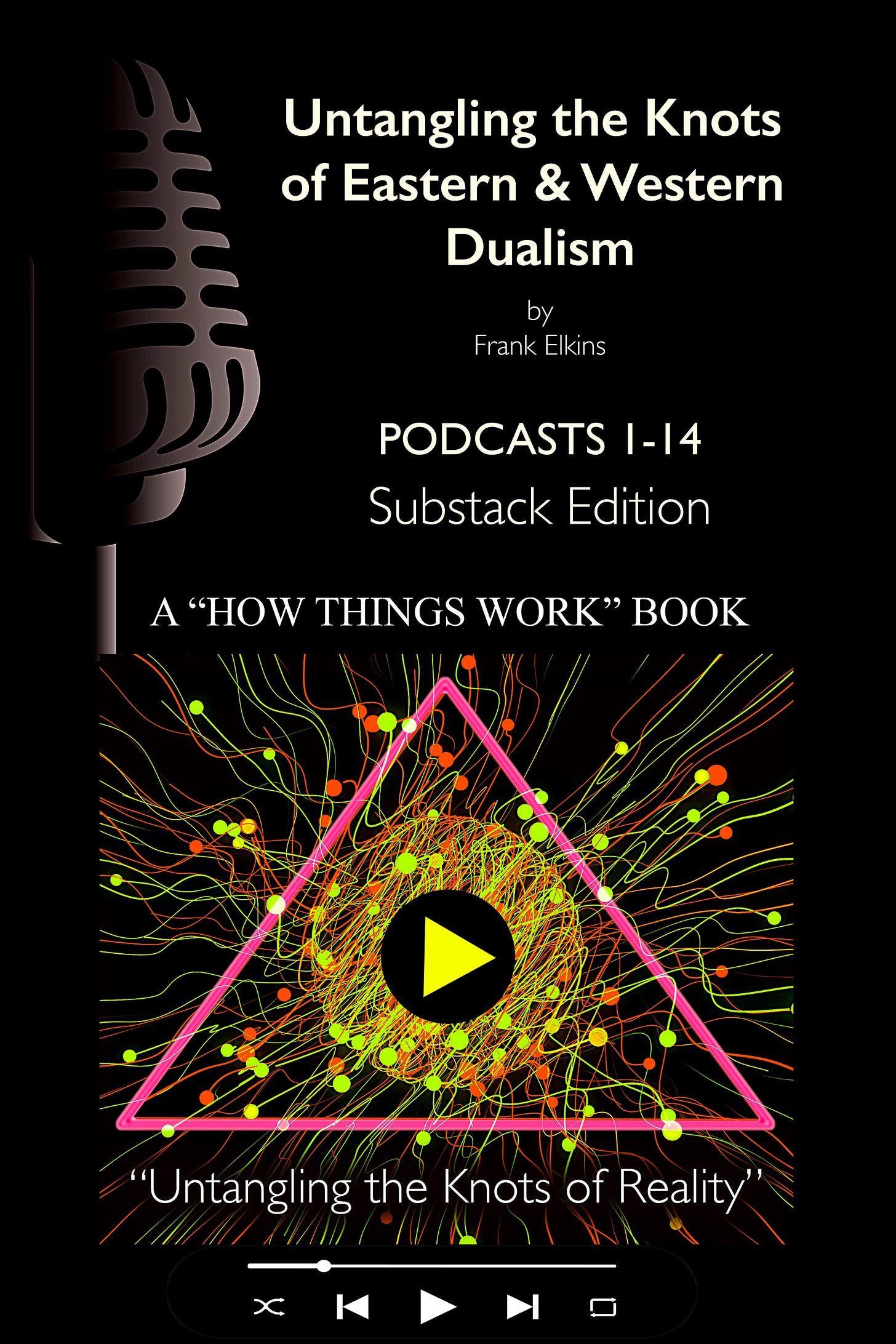How Things Work: A Brief History of Reality
BOOK II: The Power of Three (Science & Religion) – Consideration #101. "The Lineage of Jesus" (Matthew 1 & 2)
Be A Part of the Conversation!
Tuesday September 19, 2023
“While Western cultures tend to have little interest in genealogies, viewing them as tedious curiosities, Matthew and his readers would have considered this announcement to be the most exciting news of all time. The genealogy introduces Jesus as the ‘son of Abraham’ and the ‘son of David,’ meaning he is in the lineage of two of the most significant figures in biblical history.”
– Mark L. Strauss (Matthew: Jesus is the Promised Messiah)
PREFACE
Welcome Everybody!
Matthew’s gospel is meticulously built on a long Jewish tradition and history. Matthew understands Jesus through the prism of a Jewish Messiah. This, at times, can be inconvenient for Matthew. For example, in order for Jesus to be both the “son” of God and also be a direct physical descendant of Abraham and King David, Matthew makes this connection through Joseph as the “husband” of Mary, as opposed to the “father” of Jesus. In this sense, Matthew sees Jesus’ connection to Judaism as a key element of his teaching; Christianity made no sense without Judaism.
“There is no baby Jesus in a manger or shepherds watching their flocks by night in the Gospel of Matthew.”
Matthew is one of two gospels containing a birth narrative related to Jesus: Luke being the other. They are not the same birth narrative. There is no baby Jesus in a manger or shepherds watching their flocks by night in the Gospel of Matthew. There is, however, a star, three wise men, and a visit to Herod’s palace. Like everything in Matthew’s gospel, the birth of Jesus is a Jewish event.
It begins with Matthew directly connecting Jesus and his birth to the lineage of Abraham, King David, and the Old Testament prophecies concerning the Messiah.
CONSIDERATION #101 – The Lineage of Jesus
Matthew is not subtle, nor does he infer that Jesus is the Messiah. The first verse in Matthew begins with Abraham and follows a long list of generations father to son until finally arriving at Jesus and directly proclaiming him as the Messiah:
“…and Jacob the father of Joseph, the husband of Mary, and Mary was the mother of Jesus who is called the Messiah.”
– Matthew 1:16
Not only is Jesus a direct descendant of Abraham and King David, but the time of his birth also has numerical relevance within the arc of Jewish history:
“Thus there were fourteen generations in all from Abraham to David, fourteen from David to the exile to Babylon, and fourteen from the exile to the Messiah.”
– Matthew 1:17
Although there is an overall understanding that everything happens “through God,” Matthew’s claim for Jesus’ Messiahship comes directly through Joseph. For Matthew, Jesus’ claim to the role of Messiah was of earthly lineage through Jewish tradition. Thus, the need for a direct physical family lineage to Abraham and King David. However, Matthew appears to cast Joseph as more of a “foster” parent.
“Matthew firmly establishes Jesus’ Jewish credentials for the position of Messiah…”
Unlike any other name on the lineage list, Joseph is referred to as the husband of Mary, and Mary as the mother of Jesus, as opposed to Joseph being listed as the father of Jesus. Once Matthew firmly establishes Jesus’ Jewish credentials for the position of Messiah, he continues with a birth narrative to support it. In Matthew 1:18-25, the story of Jesus’ birth begins with a declaration of his Messiahship:
“This is how the birth of Jesus the Messiah came about…”
– Matthew 1:18
Which leads us into an Old Testament prophecy regarding the immaculate conception.
The story begins with Joseph and Mary pledged to be married. However, prior to the marriage, Mary becomes pregnant “through the Holy Spirit.” Although a serious violation of Jewish law, Joseph plans to quietly divorce her in order to spare her public disgrace.
“…he will save his people from their sins.”
However, “the angel of the Lord” appears to him in a dream reassuring Joseph that Mary had conceived through the Holy Spirit, and he should continue with the marriage and take her as his wife. The angel tells Joseph that Mary will give birth to a son which Joseph should name Jesus, because “…he will save his people from their sins.” Again, Matthew uses this story to remind us of who Jesus really is.
All this took place to fulfill what the Lord had said through the prophet: “The virgin will conceive and give birth to a son, and they will call him Immanuel” (which means “God with us”).
– Matthew 1:22-23
Joseph maries Mary; however, he refrains from consummating the relationship until after the birth of her son, which as commanded, Joseph names Jesus.
POSTSCRIPT
Luke connects Jesus to the lineage of King David through the connection to Bethlehem. Bethlehem is known as “the city of David.” Matthew, however, makes this connection through meticulous Biblical lineage, records, and prophecies. It is important to Matthew that Jesus is directly connected to the Jewish tradition related to the Messiah. This becomes self-evident as the gospel unfolds.
“Wise men, following a star leading them to a newly born king would end up in the palace of Herod the Great…”
Matthew is the only gospel containing the story of the magi, or wise men. It is not surprising that this narrative becomes a demonstration of who Jesus really is, the Messiah. Wise men, following a star leading them to a newly born king, would end up in the palace of Herod the Great, King of Israel. There, Herod’s priests, and scholars use Jewish prophecy to establish this new-born king as the prophesied Messiah.
Next week we will consider the story of Herod and the three wise men…
This Week on “The Thread”…
Excerpt from this week’s podcast…
Expand the Conversation by Upgrading to “Reality by a Thread!”
•Untangling the Knots of Reality: Podcast #61 “Untangling Hegel’s Concept of Geist and Absolute Spirit” (“What would a Reality of the Mind look like?” “How do the possible connotations of the German word Geist help us understand Hegel’s concept of Absolute Spirit?” “What is Hegel’s concept of Geist and how does it manifest itself into our reality as History?” “How does Geist manifest itself through art?” “What is the distinction between Objective and Subjective Spirit?” These are a few of the knots we will attempt to untangle in this week’s podcast. That’s a lot of Geist for one podcast!
So, let’s get started…”)
• REALITY BY A THREAD: BOOK VI PREVIEW (The Rational Being )
“Theories of Mind” Part Two – From a rationalist perspective, the brain represents only the physical mechanism that allows for the physical perceptions of empirical reality to be accessible to the “rational mind” which then interprets these “physical perceptions” into “physical reality.” Our “mind” is capable of more than simply accessing physical perceptions, it is capable of accessing the “a priori” knowledge that allows us to understand and consider these perceptions. In other words, the mind and the brain are two separate and distinct things...
•FREE PDF Download of Book IV: “The Cosmic Symphony – Overtones of String Theory” plus other Free Books, Discounts and Benefits. Also Gain Complete Access to all Previous Podcasts and Threads!
UPGRADE NOW!
If you find yourself growing tired of the same old meaningless fluff, this may be the Podcast you’ve been looking for…
Now Also Available!
Print Editions and Immediate PDF Digital Downloads NOW AVAILABLE!







